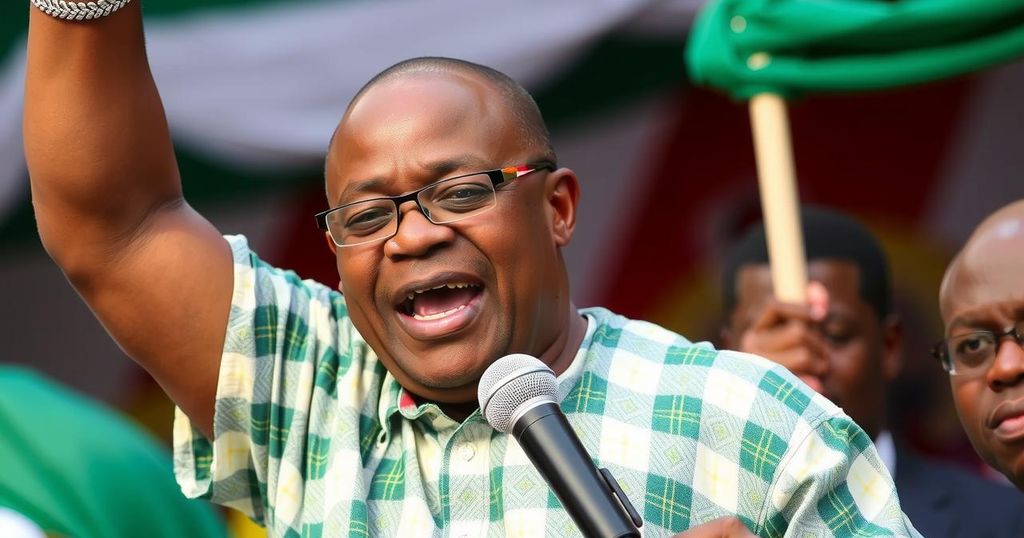Ghana’s opposition leader John Mahama won the presidential election decisively with 56% of the votes against ruling party candidate Vice President Mahamudu Bawumia, who garnered 41%. The election results reflect public discontent with the government’s handling of the economy, marked by high living costs and an IMF bailout. Mahama aims to implement reforms to revive the economy after eight years of NPP governance.
John Mahama, the leader of Ghana’s opposition party, has secured a decisive victory in the recent presidential elections, gathering 56 percent of the votes cast. This outcome reflects widespread discontent with the current government’s economic performance, which has been characterized by high living costs and significant financial turmoil. Vice President Mahamudu Bawumia, representing the ruling New Patriotic Party (NPP), received 41 percent of the votes. Mahama’s election marks a pivotal shift in power following eight challenging years under President Nana Akufo-Addo’s administration, which concluded with an IMF bailout and a debt crisis.
In his acceptance speech, Mahama articulated the pressing need for reform, stating, “These eight years have witnessed some of the darkest periods of our governance.” He emphasized his commitment to revitalizing Ghana’s economy and promised to undertake severe measures to rectify economic mismanagement. The electoral outcome, resulting in Mahama’s return to power after previous unsuccessful bids, signals a demand for change amid economic distress. The voter turnout was recorded at 60.9 percent, lower than the previous election’s participation rate, reflecting heightened voter sentiment regarding Ghana’s economic challenges.
Ghana enjoys a reputation for democratic stability, stemming from its return to multi-party politics in 1992. Two primary political entities, the New Patriotic Party (NPP) and the National Democratic Congress (NDC), have taken turns in leadership. The 2024 elections were heavily influenced by Ghana’s economic struggles, marked by a debt crisis and a significant currency devaluation impacting the living standards of many Ghanaians. As the largest gold producer in Africa and the second biggest cocoa exporter worldwide, Ghana’s economic performance is critical to its citizens’ well-being. The results of this election will affect not only the political landscape but also the country’s approach to economic recovery.
The recent presidential election in Ghana has resulted in former president John Mahama’s convincing victory over the ruling party’s candidate. This shift in power highlights the electorate’s desire for a change in leadership amidst economic distress and management challenges. With Mahama’s return, the expectation for significant reforms and improvements in economic conditions has risen, promising a pivotal transformation for the nation ahead.
Original Source: www.france24.com






